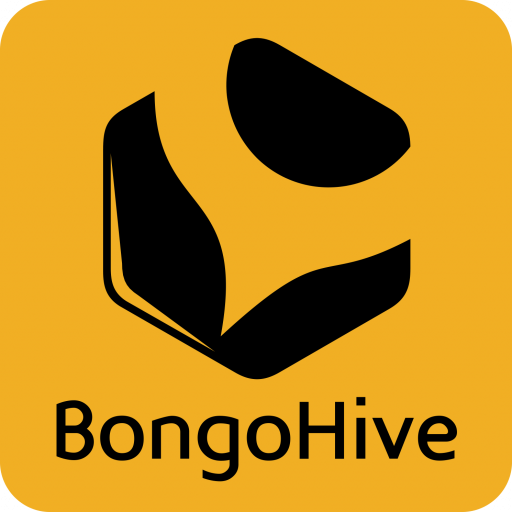The Strengthening Clinical Health Information Systems Sustainability initiative (SCHISS), in collaboration with BongoHive, invites developers, innovators, and entrepreneurs in Zambia to participate in the Digital Health Hackathon. This initiative seeks to explore the potential of technology in creating innovative Electronic Health Records (EHRs) and to encourage grassroots solutions for better healthcare delivery and improved patient well-being.
Challenge Statements
Problem: A significant challenge in the healthcare sector is patients’ limited access to and sharing of their complete medical records, often paper-based. This hinders doctors from different hospitals from providing comprehensive care, potentially leading to inadequate treatment and impeding informed health decisions. Patients face difficulty sharing records across hospitals, limiting new healthcare providers’ access to essential information, and making accurate diagnoses and appropriate care challenging for unfamiliar doctors. Additionally, this lack of access to complete medical histories hinders patients’ ability to make informed health decisions.
Problem Example: John, a 29-year-old male, faces challenges in providing complete medical histories to different doctors, which can lead to suboptimal treatment and limit his ability to make informed lifestyle choices.
Challenge Statement: How can we empower patients like John to access their complete medical records to enhance diagnosis and treatment outcomes, while also enabling them to make informed decisions about their health?
Problem: The healthcare sector is increasingly generating vast amounts of data through Electronic Health Records (EHR). This data holds the potential to revolutionize healthcare by providing insights into patient care, policy formulation, and areas of health research. However, the underutilization of this data due to challenges in access, ownership rights, and system availability, especially in remote areas, has limited the opportunities for enhanced healthcare. Additionally, there’s a need to harness the power of modern data analysis tools and methodologies, such as STATA, R, Python, predictive analytics, and machine learning, to derive meaningful insights from this data
Problem Statement: The EHR has over the years collected a vast amount of data which can be effectively analysed and insights gathered for policy formulation, enhanced clinical management and also areas of health research. There is a need to demonstrate robust data analysis for insight generation using the latest methodologies and tools like STATA, R and Python as well as deployment of predictive analytics and machine learning to enhance healthcare outcomes.
Challenge Statement:
At Chikando Clinic in Chipata, Mrs. Banda works as a devoted clinical officer with five years of experience using an EHR system. Her passion for public health is evident, yet she faces challenges in deciphering valuable insights from the EHR regarding her community’s health patterns. Believing that the appropriate tools and access can lead to groundbreaking enhancements in healthcare, how can we fortify both her and her clinic’s proficiency in harnessing electronic health records, advancing predictive analytics, and uplifting the standard of healthcare delivery?
Problem: Inadequate system integration and interoperability within Health Information Systems (HIS) have led to fragmented data, inefficient workflows, and limited access to comprehensive patient information,reducing the potential to harness healthcare data for enhance healthcare provision. . Different stakeholders and public health organisations in the digital health ecosystem tend to work in silos though this has reduced over the years.
Problem Statement: Healthcare organisations struggle with fragmented Health Information Systems (HIS), resulting in inefficiencies, reduced opportunities for health enhancement , thereby reducing positive impact for healthcare outcomes.
Challenge Statement: How can we enable seamless system integration and interoperability within Health Information Systems (HIS) to ensure timely access to accurate patient information across different systems, enhance workflow efficiency, improve data security, reduce healthcare costs, and promote collaboration within the healthcare ecosystem for comprehensive patient care?
Problem: The healthcare sector is facing difficulties in providing timely and accessible healthcare services, especially in remote or underserved areas with limited specialist availability. This results in delays in diagnosis and treatment.
Problem Statement: The current healthcare sector is struggling to keep up with the growing demand for medical services, especially in remote regions. This results in limited access and delayed care.
Challenge Statement: How can we leverage AI and telemedicine technologies to expand healthcare access, enhance medical consultation efficiency, and ensure prompt diagnosis and treatment, especially in remote areas?
Problem: In order to successfully implement healthcare technology platforms such as the Smart Care Electronic Health Records System, healthcare professionals must be proficient in their use. However, a lack of comprehensive training and support leads to difficulties in adopting and utilising these tools, which limits their transformative potential.
Problem Statement: Healthcare organizations struggle to provide effective training and technical support, hindering staff from adopting healthcare technology platforms and maximizing their benefits.
Challenge Statement: How can we develop and implement a comprehensive training and technical support program that empowers healthcare professionals to proficiently use healthcare technology platforms, ensure efficient integration into their workflows and maximize the impact of these technologies on patient care and outcomes?
Stages
APPLICATIONS OPEN
06 Oct – 30 Oct 2023
Applications will be accepted from the 6th – 30th October 2023
SPRINT DAY
04 December 2023
10 selected innovators explore the potential of their business/Ideas by validating the market and testing all assumptions in 1 day.
BUILD DAYS
05 Dec – 06 Dec 2023
Participants will use learnings from the Sprint session to further improve their applications.
DEMO DAY
07 December 2023
Pitching and Live Demo Session to select 3 winning innovations.
Benefits
Coaching
Get expert coaching from BongoHive, IHM, and Industry professionals.
Prizes
1st – ZMW 80,000
2nd – ZMW 45,000
3rd – ZMW 25,000
 BongoHive
BongoHive